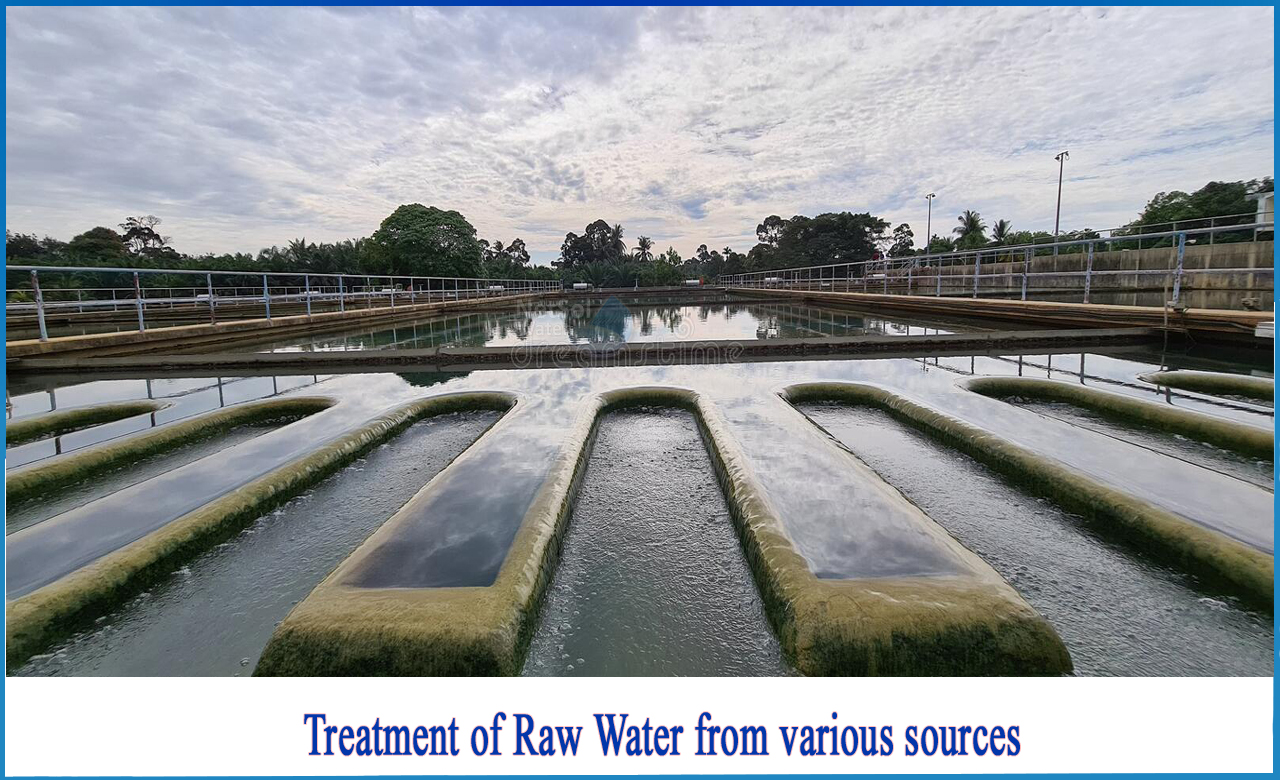How to Treat of raw water from various sources?
Raw water retains all of its minerals, ions, particles, bacteria, and parasites. Rainwater, ground water, water from infiltration wells, and water from bodies such as lakes and rivers are all examples of raw water.Because of the presence of pollutants, raw water is typically hazardous for human consumption. The use of raw water for drinking and cooking is a serious health issue in several underdeveloped nations.
It can be utilized for irrigation, building, or cleaning without being treated. Farmers use it to irrigate their crops and feed it to their cattle, keeping it in man-made lakes or reservoirs for extended periods of time.
Raw water treatment
Raw water may be used for a variety of reasons, including cooling water, washing and chemical manufacturing water, filtered water, and drinking water. However, owing to the possibility of pollutants, raw water must be treated before it can be consumed or used in industry.
There are multiple processes involved in the treatment of raw water, as well as several methods that might be used, such as:
Reverse osmosis
For nearly 30 years, reverse osmosis has been used to produce demineralized water. Water is carried over a membrane under high pressure in reverse osmosis, yielding a product mostly composed of water and a concentrate comprising the majority of other components such as minerals and undesirable residues. Many contaminants, including iron, manganese, ammonium, pesticide and pharmaceutical residues, organic micropollutants, and radioactive particles, can be eliminated by reverse osmosis.
Conventional pre-treatment
The traditional technique of water purification is a sophisticated, multi-stage procedure that has been in use for many years. It usually consists of five major phases.
First, raw water is alkalinity and pH corrected using hydrated lime and carbon dioxide.
Second, particle matter is gathered with aluminiumsulphate and other coagulants, such as polymers, through which the water runs in a cascade, mixing the chemicals and raw water with the coagulants.
Third, the water is gently mixed in clarifiers, where bigger particles fall to the bottom and are removed on a regular basis (sedimentation).
Fourth, water is diverted from the clarifiers to the filters (anthracite and sand filters, for example) to entrap any tiny particles that survived the clarifying process.
Finally, sodium hydroxide is added to modify the final pH/alkalinity, sodium hypochlorite is used to disinfect the water, and fluoride is added to fluoridate it.
Ultrafiltration
Ultrafiltration is a membrane filtration procedure that can be used instead of traditional pre-treatment. Water is just pre-filtered with a conventional screen filter in this process before being filtered at high pressure via a membrane, separating it from pollutants inside it.
Sources of Raw water treatment
1: Well and river water treatment
The major obstacles for a well or river water treatment facility are high percentages of solids and particles, as well as algae growing in the summer. The raw water is frequently filtered and softened using reverse osmosis facility, depending on the quality requirements for the process water.
2: Sea and brackish water desalination
Aside from the need for well and river water treatment, dissolved solids, particularly sodium chloride, are eliminated in the case of sea and brackish water treatment. For reverse osmosis facilities, two membrane types are used: plate/disc membranes and spiral-wound modules, which Netsol selects based on the intake conditions/pre-treatment, output quality, and customer preferences. As an engineering firm, the optimal, most cost-effective solution is more important to us than the product itself.
3: Boiler feedwater
Harmful chemicals in the boiler feed water, such as salts, precipitate on the heating surfaces, forming an insulating layer that obstructs heat transmission. This causes overheating and, as a result, thermal stress cracking. Furthermore, owing to precipitation, boiler scaling can render safety-critical plant components unusable. As a result, the treatment of boiler feed water is a significant and difficult issue in the field of water supply.
What do we offer?
Netsol Water is a renowned producer of water and wastewater treatment plants. We have a reputation for being the top commercial RO plant manufacturer, industrial RO plant manufacturer, sewage treatment plant manufacturer, and effluent treatment plant manufacturer, among other services. Aside from that, our USP is 24x7 customer assistance.
For any assistance, inquiry, or product-purchase-related questions, call on +91-9650608473 or email at enquiry@netsolwater.com.



